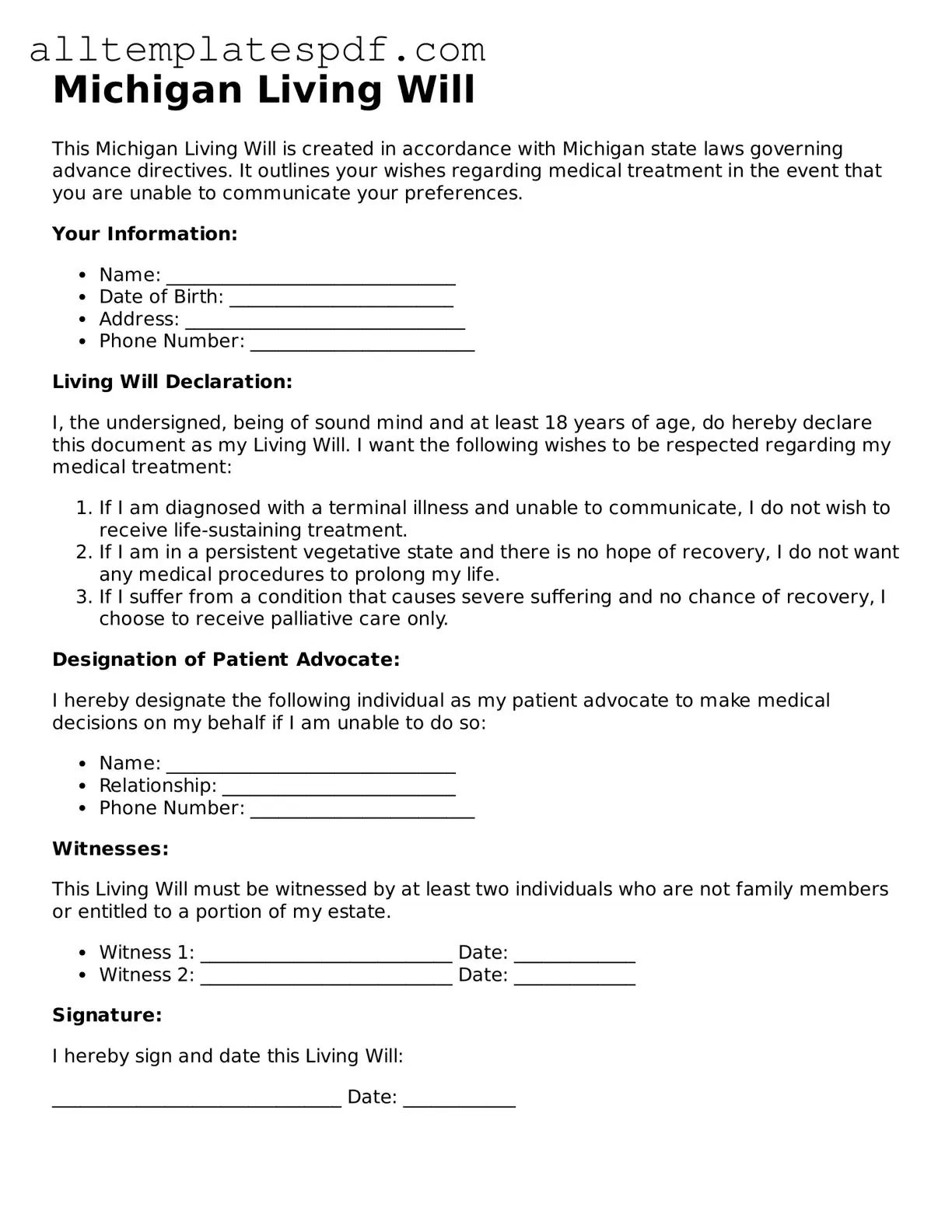Blank Living Will Template for the State of Michigan
A Michigan Living Will form is a legal document that outlines your preferences for medical treatment in the event you become unable to communicate your wishes. This important tool allows you to express your desires regarding life-sustaining measures and end-of-life care. By planning ahead, you ensure that your healthcare aligns with your values and beliefs.
If you’re ready to take control of your healthcare decisions, fill out the form by clicking the button below.
Open Editor

Blank Living Will Template for the State of Michigan
Open Editor
Fast and easy form completion
Complete Living Will digitally — fast and easy.
Open Editor
or
↓ Living Will PDF Form
